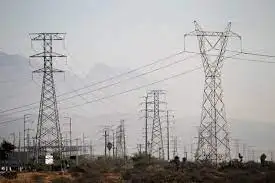Six-party talks on North Korea's nuclear program reopen
BEIJING, CHINA - North Korea's envoy to international disarmament talks said Tuesday that his country was ready to work on eliminating atomic weapons from the Korean Peninsula, while the United States reassured the communist nation at the revived negotiations that it has no intention of invading to end the nuclear standoff.
“The fundamental thing is to make real progress in realizing the denuclearization of the Korean Peninsula,� North Korean Vice-Foreign Minister Kim Kye Gwan said at the opening session of the talks in Beijing.
“This requires very firm political will and a strategic decision of the parties concerned that have interests in ending the threat of nuclear war,� he said. “We are fully ready and prepared for that.�
The talks are the fourth such six-nation negotiations, which also include China, Japan, Russia, South Korea and the United States. They are reconvening after a 13-month boycott by the North, which cited “hostile� U.S. policies.
North Korea agreed to return to the talks following a meeting earlier in July between Mr. Kim and the main U.S. envoy, Assistant Secretary of State Christopher Hill, who assured the North that Washington recognized its sovereignty.
Mr. Hill repeated those pledges.
“We view [North Korea's] sovereignty as a matter of fact. The United States has absolutely no intention to invade or attack� North Korea, Mr. Hill said in his opening remarks.
Unlike the previous rounds, which were scheduled for several days, no end date has been set for the resumed negotiations.
Mr. Hill said his delegation would remain in Beijing “so long as we are making progress in these talks.�
“We do not have the option of walking away from this problem,� he said.
Mr. Hill also said the U.S. would address the North's security and energy concerns after the nuclear issue is resolved.
“Nuclear weapons will not make [North Korea] more secure,� he said. “And in fact, on the contrary, nuclear weapons on the Korean Peninsula will only increase tension in the region.�
Neither the North Koreans nor the Americans offered any new proposals or concessions in their opening comments. South Korea's envoy, Deputy Foreign Minister Song Min-soon, repeated his nation's offer of massive electricity aid to the North if it agrees to disarm.
The talks are the first in which Mr. Hill is representing Washington, and he is believed to have more room for negotiating than his predecessor, James Kelly. In a departure from previous meetings, Mr. Hill met his North Korean counterpart on Monday ahead of the official opening of the talks.
However, Mr. Hill said earlier that he didn't expect this round to be the last of the six-nation talks.
The latest nuclear standoff with North Korea erupted in late 2002, when U.S. officials accused the communist nation of running a secret uranium enrichment program.
Since then, the North has pulled out of the Nuclear Non-proliferation Treaty and taken steps that would allow it to harvest more radioactive materials for atomic bombs. In February, the North publicly claimed it had nuclear weapons, but it hasn't performed any known tests that would confirm it can make them.
North Korea has demanded aid and security guarantees from Washington in exchange for giving up its nuclear weapons. The United States says it won't offer concessions until North Korea's nuclear weapons program is verifiably dismantled.
Analysts have said they don't expect any breakthrough at this session, given the vast gap between the U.S. and North Korean positions.
Another issue that could complicate the arms talks is Japan's concerns about its citizens abducted by the North. Tokyo's envoy, Kenichiro Sasae, director of the Asia and Oceania Bureau at Japan's Foreign Ministry, said Tuesday that his country is “unwaveringly committed� to eventually normalizing relations with North Korea but didn't directly say if he'd raise the abduction issue.
South Korea's main delegate appeared to issue a warning Tuesday to Japan not to derail the negotiations from their main goal, saying it “would definitely not be desirable to take up issues that would disintegrate the focus of the talks.�
“North Korea should give up its nuclear weapons program, and I hope other countries will clearly promise to take corresponding measures� in return, Mr. Song said, referring to normalizing relations with the North and offering security guarantees.
Meanwhile, police detained five people demonstrating outside the venue of the talks. It wasn't clear what they were protesting about, but Chinese citizens often use such events to voice personal grievances.
Related News

California Welcomes 70 Volvo VNR Electric Trucks
CALIFORNIA - In a significant step toward sustainable transportation, the Switch-On project is bringing 70 Volvo VNR Electric trucks to California. This initiative aims to bolster the state's efforts to reduce emissions and transition to greener logistics solutions. The arrival of these electric vehicles marks an important milestone in California's commitment to combating climate change and improving air quality.
The Switch-On Project: Overview and Goals
The Switch-On project is a collaborative effort designed to enhance electric truck adoption in California. It focuses on developing the necessary infrastructure and technology to support electric vehicles (EVs) in the freight and logistics sectors.…




